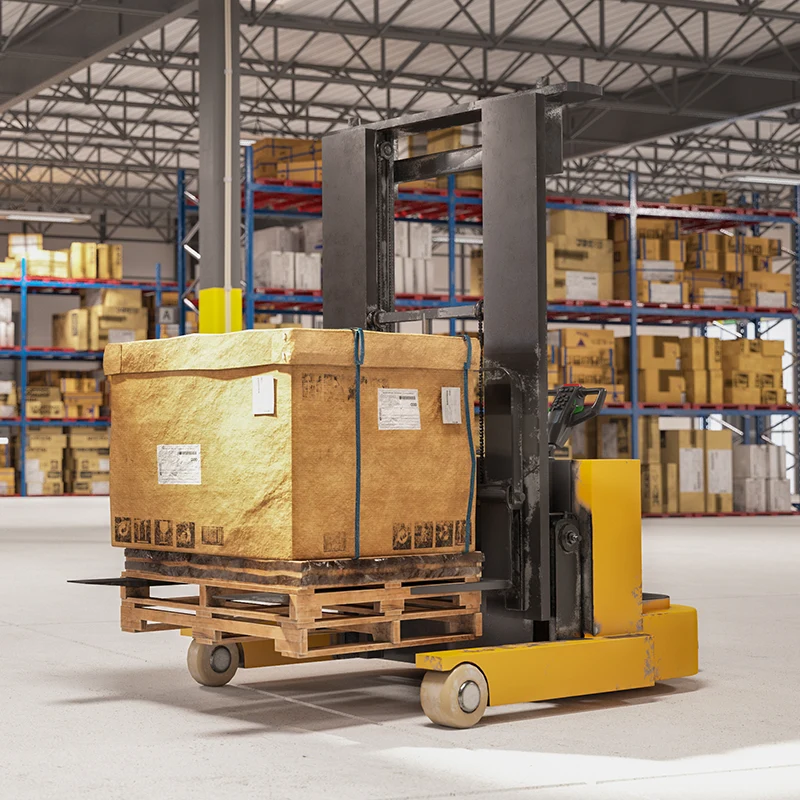Reasons to Choose Solid Tires
2025-07-02
Solid tires, also known as airless or non-pneumatic tires, have become an increasingly popular choice in various industries, especially for vehicles like forklifts, construction machinery, and lawn equipment. Unlike traditional air-filled tires, solid tires offer a number of distinct advantages, which make them a compelling choice for many applications. This essay explores the primary reasons to choose solid tires over their conventional counterparts, focusing on durability, cost-effectiveness, safety, and environmental benefits.
1. Durability and Longevity
One of the key reasons to choose solid tires is their exceptional durability. Traditional pneumatic tires are susceptible to punctures, blowouts, and damage from sharp objects like nails, glass, or rocks. Solid tires, on the other hand, are made from solid rubber or polyurethane, eliminating the risk of punctures. This makes them ideal for environments where sharp debris is common, such as construction sites, warehouses, and outdoor facilities. Because solid tires are free from air pressure, they are not affected by changes in temperature or pressure fluctuations, meaning they maintain their shape and performance over time. This durability leads to a much longer lifespan compared to air-filled tires, making solid tires a wise investment for long-term use.
2. Cost-Effectiveness
While the initial purchase price of solid tires can be higher than that of traditional tires, their longevity and reduced maintenance needs make them a more cost-effective choice in the long run. Since they don’t require air pressure checks or repairs for punctures, businesses can save money on maintenance, downtime, and the cost of replacement tires. Moreover, solid tires require fewer replacements due to their extended lifespan, which further reduces overall expenses. In applications where vehicles are used in harsh conditions, the cost savings can be significant.
3. Safety and Reliability
Solid tires are inherently safer than pneumatic tires because they eliminate the risk of a blowout, which can be dangerous, especially in high-speed or high-weight applications. For industries such as logistics, construction, and agriculture, where machinery operates in demanding conditions, the added safety of solid tires is invaluable. The risk of tire failure is virtually eliminated, providing more reliable performance and reducing the chances of accidents caused by sudden deflation or loss of tire pressure. Additionally, solid tires provide better traction and stability on rough or uneven terrain, which enhances overall safety for the operator.

4. Minimal Maintenance and No Air Pressure Concerns
Unlike air-filled tires, which require regular air pressure checks and maintenance to ensure optimal performance, solid tires are maintenance-free. With solid tires, there’s no need to worry about pressure loss or the hassle of inflating tires. This makes them particularly appealing for businesses that operate in remote or rugged areas where access to air pumps may be limited or inconvenient. The reduced need for maintenance not only saves time but also lowers operational costs, making them an attractive option for busy environments where downtime can be costly.
5. Environmental Benefits
Solid tires are often made from recyclable materials such as rubber or polyurethane, which can reduce their environmental impact compared to traditional pneumatic tires. Furthermore, because they last longer, solid tires contribute to less waste in landfills and reduce the need for frequent replacements. This longer lifespan and reduced need for disposal help businesses contribute to sustainability efforts and environmental stewardship. In industries where environmental impact is a growing concern, such as waste management and sustainable agriculture, solid tires present an eco-friendly alternative to conventional tires.
6. Performance in Extreme Conditions
Solid tires excel in extreme environmental conditions, whether it's extreme heat, cold, or rough terrain. Pneumatic tires can lose air pressure in hot or cold weather, affecting their performance and reliability. Solid tires, being impervious to pressure loss, maintain consistent performance regardless of temperature fluctuations. In addition, solid tires provide superior performance on challenging surfaces such as gravel, snow, and mud, making them ideal for outdoor applications or industries that require reliable equipment in harsh conditions.
Conclusion
In conclusion, solid tires offer a multitude of benefits that make them an excellent choice for various industries. Their durability, cost-effectiveness, safety, and minimal maintenance needs are significant advantages over traditional pneumatic tires. With their ability to perform reliably in extreme conditions and reduce the environmental impact, solid tires are becoming a preferred choice for businesses that prioritize efficiency, sustainability, and safety. While they may require a higher upfront investment, the long-term savings and enhanced performance make solid tires a valuable asset in many industrial applications.
As a professional manufacturer and supplier, we provide high-quality products. If you are interested in our products or have any questions, please feel free to contact us.